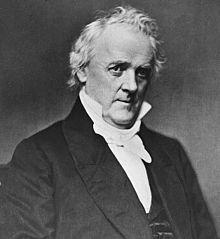
There is a piece at Free Exchange entitled ‘Don’t Hate the Player, Hate The Game’ that talks about the contributions of James Buchanan, who died recently. Now, Buchanan was a very influential person to a couple of people who I myself find influential, namely Jack Wiseman and Karen Vaughn. From what I read, Wiseman was a close friend and colleague of Buchanan who often cited Buchanan and Vaughn cites Buchanan often, especially when talking about subjectivist economics. Nevertheless, I do not share the same appreciation as they do. I think Public Choice is one of the worst things Austrians could endorse, and this is certainly the case in the GMU program. For a critique that I find valid of Public Choice from an Austrian perspective go here .
The main core of the argument is stated here:
Implicit in the assertion that “politics without romance is impossible” is the assumption of public ignorance. The public does not understand the niceties of politics. This is all the more amazing upon observing how emotionally involved people become in something (presidential elections) while remaining so woefully ignorant of it — and even ignorant of their own ignorance! Voters actually think that they are making the right choice; in most cases they are convinced of it. But the truth is that voters typically do not know what is going on. (They know the color of Mrs. Obama’s dress, but are ignorant of the minute details of Mr. Obama’s policy proposals.) And it is funny to hear commenators on the news repeatedly lament that other commentators are not sticking to the issues, issues that people want to hear! I would be willing to bet that if popular news outlets began discussing the “issues” in great detail, the people’s interest in politics, and their participation in it, would quickly end. But what makes Austrians think that this ignorance stops with voters? This ignorance cuts both ways. Politicians cannot know the effects of any political exchange (vote trading). Public Choice Theory relies on the principle of omniscience for its validity… Austrians are doing great injustice to Hayek and Mises in believing that politicians can accomplish whatever they want by acting in their own self-interest. The effects of any action in politics are terribly complicated, and its unintended consequences too numerous to assess and evaluate intelligently.
Damn, maybe it is true that libertarians are just lazy Marxists. It is a shame to see that Austrians are so quick to accept arguments about those damn bureaucrats in government ruining the lives of many because they only look after their own self interests. This gives the Austrian school the incentive of arguing that a market process is purely a ‘private’ activity with the interventions of government ruining the end result of these private actions, or that capitalism without the help of the state is somehow consistent, and is something that the public can benefit from. Underlining all this is the belief that neoclassical economics is essentially right but all it needs is a bit of Austrian tweaking, a view that Karen Vaughn tried to get us to stop using in exchange for a more Lachmannian view of trying to make Austrian economics a true school of the heterodoxy.( And Austrians wonder why others call them neoclassicals).
I used to believe in these type of arguments, but now I laugh at myself for ever thinking such a thing. Don’t get me wrong, there may be reasons for a smaller government than what others envision (and this can be something worth defending with the opposition happy to debate), but this is certainly not the way to justify so called free market economics
